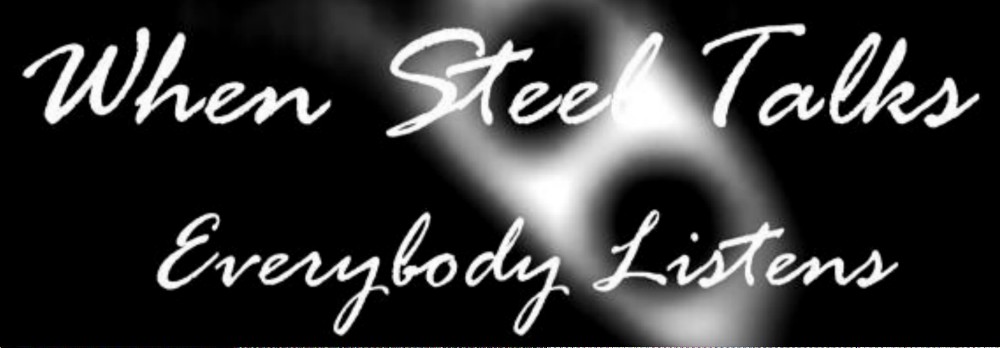Desperadoes
Steel Orchestra

2025 Tune of choice: “Cocoa Tea” | arranger: Carlton “Zanda” Alexander
![]() tap/click for history/bio
tap/click for history/bio
Desperadoes took their name from a movie of the same name. To date, the orchestra has been victorious in the Panorama competition in Trinidad and Tobago on twelve occasions. The first victory came in 1966. Successes followed in 1970, 1976, 1977, 1983, 1985, 1991, 1994, 1999, 2000, 2016 and 2020. The orchestra has also excelled at the music festivals held in Trinidad and Tobago, having won on three consecutive occasions after a hiatus of twenty years. Desperadoes has toured the Caribbean, Africa, United Kingdom and the United States of America, performing at some of the most prestigious cultural centres globally including the Royal Albert Hall, Carnegie Hall and the Apollo Theater in New York.
The band also performed at the Olympics in Atlanta, USA in 1996. Desperadoes toured several countries on the African continent. Some other nations visited include Jamaica, Cuba, Bahamas, St. Lucia and Barbados. Acknowledged globally as one of the cultural icons of the Caribbean, Desperadoes has performed in concert with world-renowned tenor Luciano Parvarotti. The band, under the astute leadership of Rudolph “The Hammer” Charles, invented and introduced to the steelband movement chromed steelpans, aluminum canopies, the Rocket Pan, the Quadro-Phonic Pan, the Baritone Pan, the Chariot Pan, the Nine Basses and the Twelve Basses.
Major Awards: National Award - Chaconia Medal Gold Steelband of the Century (Pan Trinbago Award)
Click for more on Desperadoes Steel Orchestra
Desperadoes In Pictures - 2014
Address: c/o Blondell Post Office,
Upper Laventille Road,
E.D.R., Port of Spain
Trinidad and
Tobago, W.I.
Champion Years - Panorama - 1966, 1970, 1976, 1977, 1983, 1985, 1991, 1994, 1999, 2000, 2016, 2020
Audio & Video performances - 1966, 1970, 1976, 1977, 1983, 1985, 1991, 1994, 1999, 2000
Panorama
- Carlton “Zanda” Alexander - 2024
- Carlton “Zanda” Alexander - 2023
- Carlton “Zanda” Alexander - 2020
- Carlton “Zanda” Alexander - 2019
- Carlton “Zanda” Alexander - 2018
- Carlton “Zanda” Alexander - 2017
- Carlton “Zanda” Alexander - 2016
- Robert Greenidge - 2015, 2014, 2013, 2012, 2010, 2011, 2009, 2008, 2007, 1998, 1997, 1996, 1995, 1994, 1993, 1992, 1991, 1990, 1989, 1981
- Andre White - 2012
- Edison “Eddie” Quarless - 2006
- Clive Bradley - 2005, 2004, 2003, 2002, 2001, 2000, 1999, 1980, 1982, 1983, 1984, 1979, 1978, 1977, 1976, 1975, 1974, 1973, 1972, 1971, 1970, 1969, 1968
- Scipio “Sarge” Sargeant - 1967
- Beverly Griffith - 1988, 1987, 1986, 1985, 1969, 1966, 1965, 1964, 1963
Classical
-
Pat Bishop: Steelband Festival Championship - 1986, 1988, 1992
Desperadoes Tuners
- Rudolph Charles: - Basses
- Wallace Austin: - Basses
- Lincoln Noel: - Tenor Basses, Guitars, Quadrophonics, Six-Pans; also Double Tenors and Double Seconds
- Bertie Marshall: - Tenors, Double Tenors, Double Seconds
- Clifford Alfred: - Basses (six, nine and twelve)
- Desmond “Mappo” Richardson: - Tenors, Double Tenors, Double Seconds.
- Emmanuel “Jack” Riley
- James “Bassman” Jackman
- Reynold “Tony Slater” Gillies
- 2025 Tune of choice: “Cocoa Tea” | arranger: Carlton “Zanda” Alexander
- 2024 Tune of choice: “DNA” | arranger: Carlton “Zanda” Alexander
Additional info below posted with special permission from the BestOfTrinidad.com by Ronald C. Emrit - check link for updates
| This
Laventille (Rose Hill) band was formed in the
early-1940s by a group of young men that included
Wilfred “Talkative” Harrison, Ivan “Brains” Bourne, Reynald
“Singco” John, Donald “Jit” Steadman, Carlton “Mimp” Francis, Brooks Banton, Wilfred
“Be-eh” Pacheco, and George Yeates. The band was
first called the “Dead End Kids” before its name was
changed in the 1950s to Gay Desperadoes, after the
1936 American movie “The Gay Desperado” starring Ida Lupino.
In the late-1950s, before it made its impact musically, Desperadoes was involved in some of the most violent Carnival clashes with other steelbands: Tokyo; Renegades; and San Juan All Stars. However, by the early-1960s, the band's image began to change under the leadership of George Yeates who was successful in gaining the sponsorship of the Coca Cola Company. Around this period, Rudolph “Crabby” Charles left the small steelband “Spike Jones” to join Desperadoes and, by the mid-1960s, had become its leader and arranger. By then, the band had moved from its first location in lower Laventille Hill to the community center up the hill. In 1966, the sponsorship of the band changed from Coca Cola to the West Indian Tobacco Company. Under Charles's leadership, help was recruited to improve the band with tuners Ellie Mannette, Vernon “Birdie” Mannette and Emmanuel “Jack” Riley from the Invaders Steelband, and musicians Beverly Griffith (Starland Steelband), Carl “Bumpy Nose” Greenidge (Kentuckians Steelband), Raymond “Artie” Shaw (Police Band), and Clive Bradley (Clarence Curvan Orchestra). Later, Robert Greenidge joined the list of musical arrangers who contributed to the band's success. Strongly supported by the Laventille community, Desperadoes had very impressive Carnival presentations from the mid-1950s through the 1960s: “Sands of Iwo Jima”; “Operation Korea”; “To Hell and Back”; “Glorious Spain”; “Crawl of the Crocodile”; “Prisoner of Zenda”; “Extracts from the Animal Kingdom”; “The Frozen North.” Over the years, Desperadoes performed in concert abroad at the following venues: Royal Albert Hall (London, England); Carnegie Hall (New York, USA), with Liza Minelli and Skitch Henderson; the first Black Arts Festival (Senegal); Apollo Theatre (New York, USA); and Barbados, with Luciano Pavarotti. Following one of its visits to the USA in the 1970s, the band changed its name from “Gay Desperadoes” to “Desperadoes.” The band won the Panorama competition ten times, the Steelband Music Festival three times and, in 1992, received the Trinidad & Tobago Chaconia Medal Gold for its cultural contributions. Desperadoes finished among the top three steelbands in the following significant competition: |
||||||||||||||||||||||||||||||||||||||||||||||||||||||||||||||||||||||||||||||||||||||||||||||||||||||||||||||||||||||||||||||||||
|
||||||||||||||||||||||||||||||||||||||||||||||||||||||||||||||||||||||||||||||||||||||||||||||||||||||||||||||||||||||||||||||||||
| Compiled by Ronald C. Emrit |




